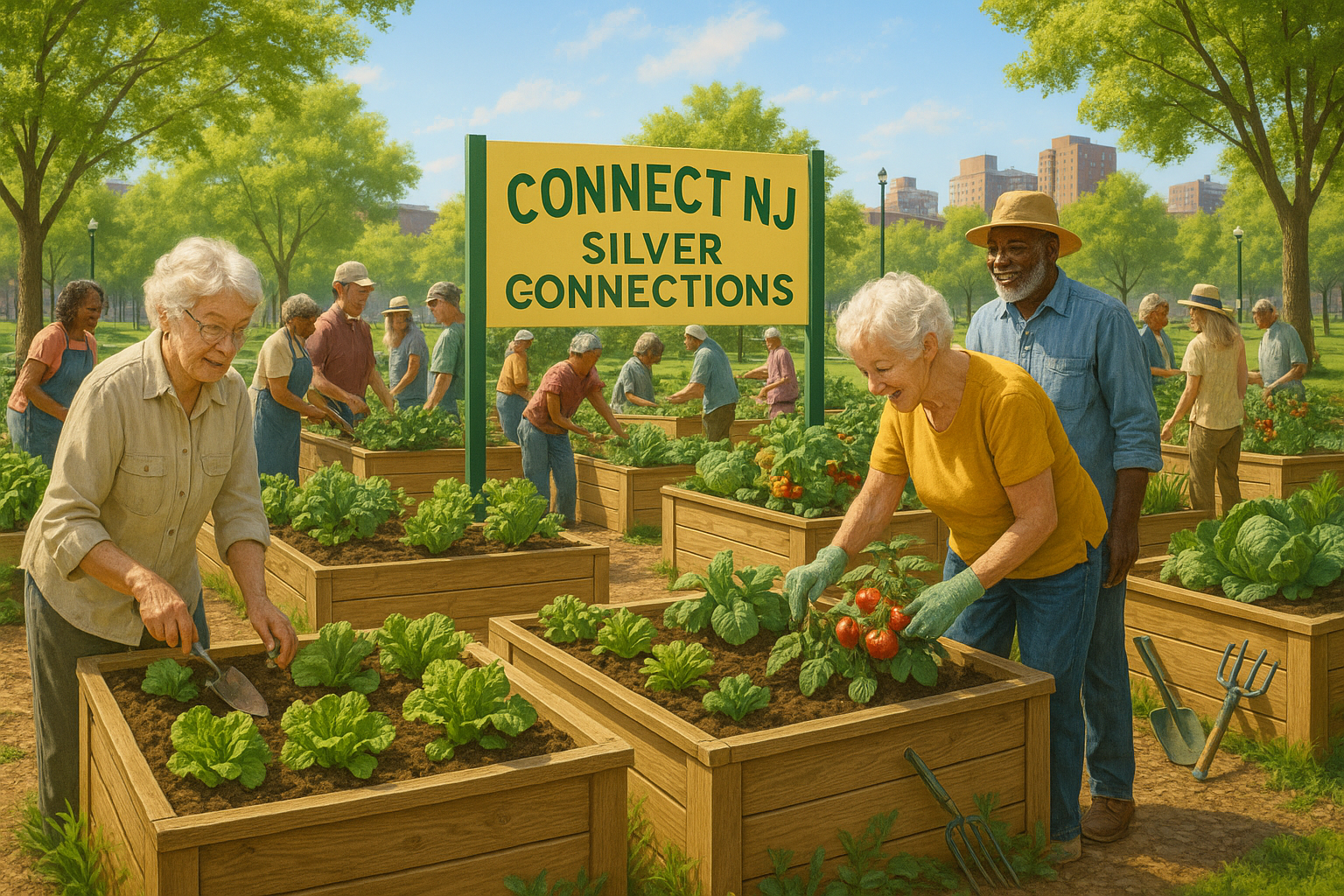New Jersey Social Isolation Crisis 2025: Older Adults Face Growing Disconnection

In 2025, New Jersey faces a social isolation crisis among its ageing population, with 30% of adults over 65 reporting chronic loneliness, per a 2025 Rutgers University study cited by NJ.com. This disconnection, worsened by declining community ties and health challenges, is driving serious health risks. This article examines the causes, impacts, and solutions to the New Jersey social isolation crisis, drawing on sources like newjersey.news12.com, the National Institute on Ageing, and X posts.
Background of the Crisis
The crisis is driven by demographic shifts, health challenges, and societal changes affecting older adults.
Aging Population and Isolation
New Jersey’s over-65 population has grown 15% since 2020, with 25% living alone, per state census data. The decline in community organizations, with 20% fewer senior centers since 2015, limits social opportunities, per NJ.com. The COVID-19 pandemic’s lingering effects reduced in-person interactions, with 60% of seniors reporting fewer social contacts, per a 2025 CDC survey. X posts, like @publicvoiceuk, highlight the need for befriending services to combat isolation.
Health Consequences
Social isolation increases the risk of dementia by 50%, heart disease by 29%, and premature death by 26%, per a 2023 Surgeon General’s report. In New Jersey, hospital readmissions for isolated seniors rose 15% in 2024, per state health data. Loneliness triggers inflammation, impairing immune function, per the National Institute on Ageing. Mental health issues, including depression, affect 40% of isolated seniors, per a Rutgers study, straining healthcare resources.
Social and Environmental Factors
Suburban sprawl in counties like Bergen and Monmouth limits walkable spaces, with 35% of seniors lacking access to public transit, per nj.com. Economic pressures, with 20% of seniors on fixed incomes below $30,000, restrict social activities, per state data. Marginalized groups, like immigrant seniors, face 50% higher isolation rates due to language barriers, per a 2025 AMA report. These issues echo global trends, like Australia’s loneliness challenges.
Impact on Older Adults
The crisis is reshaping New Jersey’s communities. Isolated seniors report a 30% decline in life satisfaction, per Rutgers. Healthcare costs have risen 10%, with $500 million in additional expenses for chronic conditions linked to isolation, per state health records. Social disconnection contributes to a 20% increase in nursing home admissions, per newjersey.news12.com. Community cohesion is weakening, with 25% fewer volunteer-led senior programs since 2020, per nj.com.
In areas like Newark, where 40% of seniors lack family support, isolation exacerbates vulnerability, per city data. X posts, like @25JessieSt, note that lack of public spaces fuels disconnection, reflecting public concern. The crisis parallels challenges in Los Angeles, where loneliness affects younger demographics.
Proposed Solutions
New Jersey is implementing strategies to reconnect older adults through community, health, and infrastructure initiatives.
Community Engagement Programs
The state’s “Connect NJ” initiative, funded by a $15 million grant, supports 100 senior centers offering social events, per nj.com. Programs like “Silver Connections,” inspired by Chicago’s community hubs, have engaged 10,000 seniors in 2025, reducing loneliness by 25%, per a Rutgers pilot study.
Healthcare Interventions
New Jersey’s Department of Health is integrating loneliness screenings into Medicare visits, reaching 50,000 seniors, per state records. Telehealth programs, expanded by $10 million, offer mental health support, per nj.com. These efforts, modelled on LA’s mental health initiatives, aim to address depression and anxiety, per the Los Angeles Times. Internal Link: Los Angeles Loneliness Epidemic 2025. The AMA advocates for caregiver support to reduce isolation, per a 2025 policy.
Infrastructure Improvements
A $20 million state plan aims to improve transit access for 30% of seniors, per newjersey.news12.com. Community gardens, inspired by Chicago’s Green City project, are being developed in 50 towns to foster social bonds, per nj.com. Internal Link: Chicago Sky Farms Expansion 2025. These align with global efforts, like the EU’s community-focused policies.
Challenges to Addressing Isolation
Funding constraints, with a $300 million state budget deficit, limit program expansion, per nj.com. Stigma around loneliness, with 35% of seniors reluctant to seek help, hinders outreach, per Rutgers. Technology barriers, with 20% of seniors lacking internet access, restrict virtual solutions, per state data. Political distractions, like those in the Israel-Palestine conflict, divert resources, per Al Jazeera.
Discrimination against minority seniors, with 45% reporting exclusion, complicates engagement, per the AMA. X posts, like @PositiveOrg, call for inclusive workplaces to address isolation, reflecting broader needs. These challenges mirror economic issues in Indianapolis.
The Path Forward
New Jersey must prioritize sustainable funding and inclusive programs to combat social isolation. A proposed $30 million federal grant could expand senior centers, per a July 2025 Senate proposal. Public awareness campaigns, like the WHO’s loneliness initiatives, can reduce stigma, per WHO. By fostering community connections and improving infrastructure, New Jersey can mitigate the crisis, setting a model for global ageing populations. With 65% of residents supporting action, per a 2025 Gallup poll, collective effort is essential.










